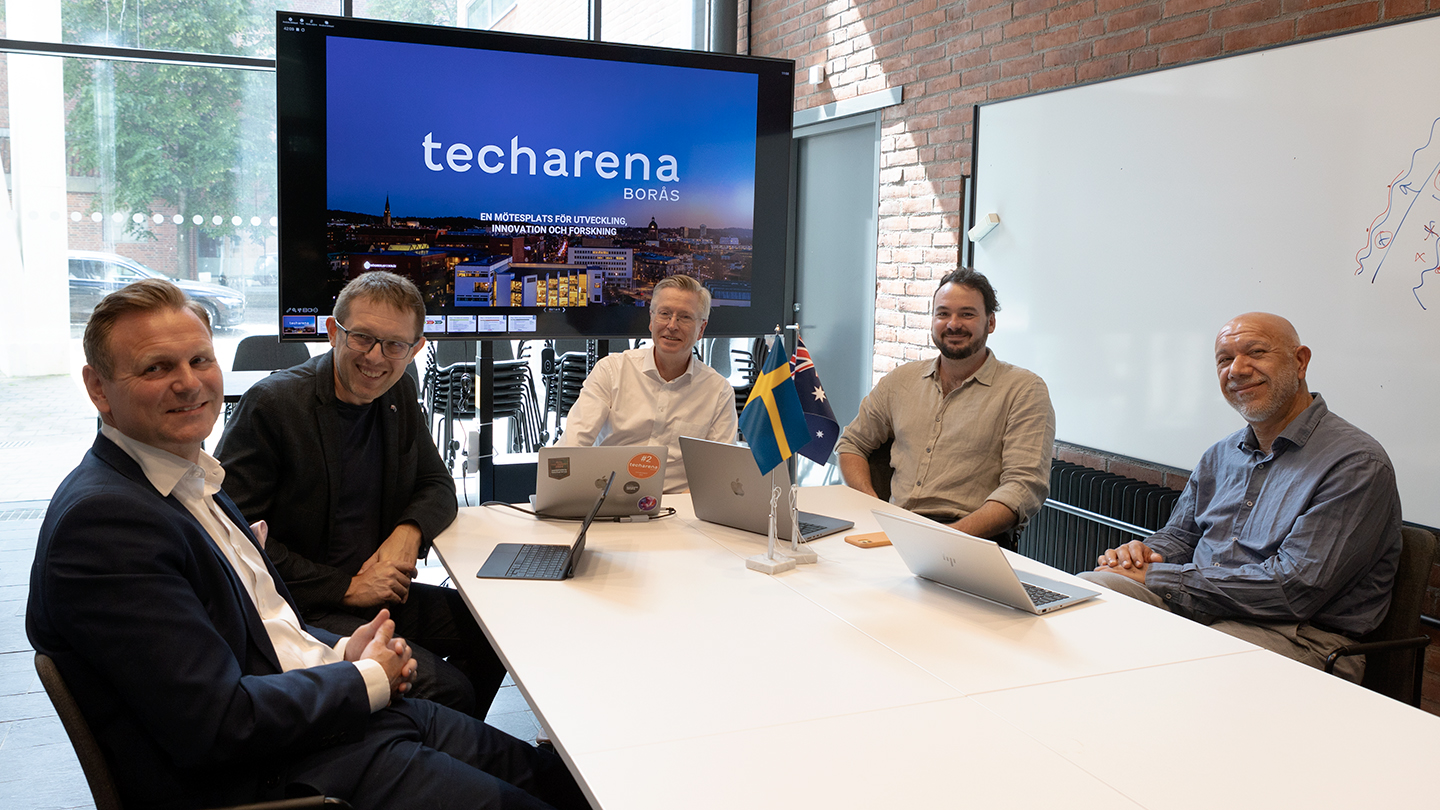International collaboration a boon for Techarena Borås
2024-06-14
 Hannes Göbel, Marek Kowalkiewicz, Gustaf Juell-Skielse, Peter Townson and Daniel Yar Hamidi. Photo: Lina Färm
Hannes Göbel, Marek Kowalkiewicz, Gustaf Juell-Skielse, Peter Townson and Daniel Yar Hamidi. Photo: Lina Färm
Marek Kowalkiewicz, Professor at the QUT Business School and Peter Townson, senior designer at the QUT Centre for Future Enterprise, have carried out nearly 50 innovation sprints with participants from the public sector, business and academia. In connection with a research conference, they visited the University of Borås and Techarena Borås.
“We met a few years ago and it has been one of my goals to achieve this collaboration. The hope is that we will deepen it and advance the research frontier,” said Gustaf Juell-Skielse, Professor of Information Systems and Project Leader for Techarena Borås.
He emphasises that the innovation sprints are interesting for researchers in several fields, not just in tech, and hopes for more interdisciplinary collaborations in the future.
The innovation sprints at Techarena Borås differ from those at QUT in that they have received public funding from the Swedish Agency for Economic and Regional Growth and Region Västra Götaland. This means that small and medium-sized companies have the opportunity to participate. Another difference is that Techarena Borås hosts several companies together during a sprint, which, despite being competitors, face common issues.
“It has been interesting for us to hear more about this work, as our sprints are almost exclusively financed by the participating companies, which participate one by one,” said Marek Kowalkiewicz.
“Invest in professional communication”
He and Peter Townson gave tips on the importance of professional communication, on visualising results in a way that appeals to companies and that speaks their language. A report should be so graphically attractive and easily accessible that the person who receives it in their hands will want to share it further. Another tip was to design the sprints so to promote a sustainable work environment in the long term, as there is a risk that the participants otherwise work too hard and long when they focus on a problem.
“Nowadays, we have clear rules so that we don't get exhausted. We work with the sprints between 9-16; no one expects more than that. That way, there is some time to answer emails and also take care of yourself,” said Peter Townson.
Companies get a larger perspective
Techarena Borås has carried out two very successful innovation sprints, the most recent of which brought together companies, students and researchers who for six weeks focused on how generative AI can streamline customer journeys. Although innovation sprints are a relatively new way of working, the research area of Business and IT has long brought together companies to jointly solve problems, said Hannes Göbel, Head of the Department of Information Technology.
He added, “We like to work that way; there are many advantages. Companies get access to many different perspectives and the opportunity to see patterns. It often turns out that they have similar challenges. For the researchers, this way of working provides ideas for new research questions.”
Innovation sprint – a powerful problem solver
Innovation sprints are a method for solving problems and developing ideas for a limited time and in collaboration. The aim is to promote creativity, learning and collaboration within and between companies. The result of an innovation sprint can be, for example, a prototype, a process or a method.
New innovation sprints at Techarena Borås are planned on an ongoing basis.
For questions and collaboration, contact Gustaf Juell-Skielse.
Read more
Lina Färm/Translation by Eva Medin
Lina Färm

